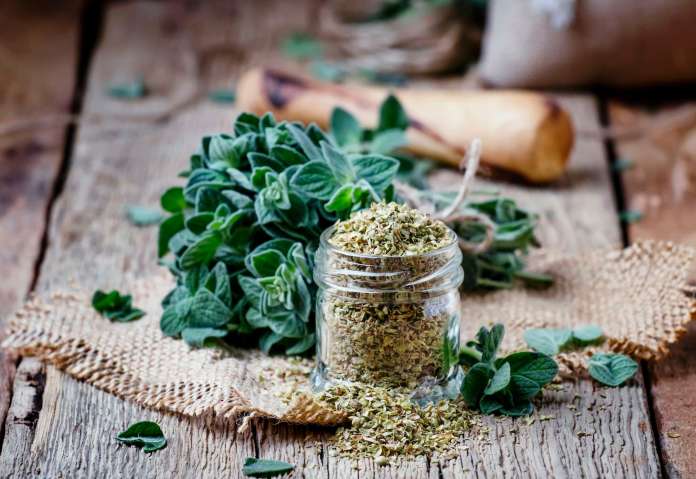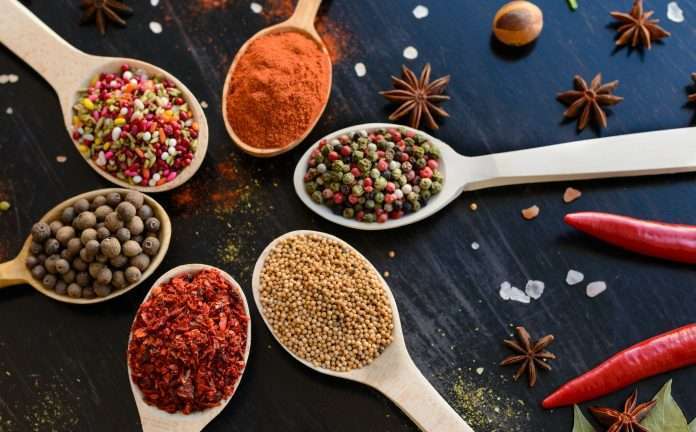Ancient Greeks used a range of spices and plants for their therapeutic powers long before modern medicine. Saffron, cinnamon, thyme, coriander, and other plants were employed as therapies by ancient people, and many of these are still used today as natural cures for fevers, aches, pains, and other illnesses. While there is little to no scientific proof that many herbs and spices actually treat major ailments, research is increasingly showing that they have qualities that may aid with symptom management.
Your morning coffee with a dash of cinnamon or a generous amount of finely chopped basil on pasta. You are aware of how spices and herbs can enliven nearly any dish. They can, however, take a lot of steps to keep you healthy. Some of our favorite herbs and spices provide the following health advantages, along with mouthwatering applications.
Also read:
- Healthy and Tasty Foods to Enjoy with Your Meal
- Top 10 Herbs for Medicinal Use
- Palua (Arrowroot) – A Wild Edible Tuber In Tribal Hinterlands
1. TURMERIC

One of the most utilized spices today for both cooking and health advantages is turmeric, also known as curcumin. Turmeric has been found to have anti-inflammatory, antioxidant, antibacterial, antiviral, and anti-parasitic properties in laboratory experiments. According to a study, turmeric is the most beneficial of all of these due to its anti-inflammatory and antioxidant qualities. With its capacity to scavenge damaging free radicals in the body, turmeric improves oxidative stress as a chain-breaking antioxidant and anti-inflammatory spice. Free radicals are tissue-damaging molecules with an unbalanced number of electrons that can act as catalysts for long-term illnesses like cancer and cardiovascular disease.
2. PEPPERMINT

Peppermint is a widely used herb that originates from Europe and Asia and is frequently used as a flavoring ingredient. Before the development of modern medicine, people in these areas utilized it for its calming effects, antibacterial capabilities, and to enhance digestive health. According to studies, peppermint works as a bronchodilator to improve both cardiovascular (heart) and pulmonary (lung) health as a comprehensive treatment. The lungs’ air passageways, known as bronchioles, are widened by bronchodilators to achieve their desired effect. When someone inhales the aroma of peppermint, their nasal air force will likewise increase, increasing the amount of air that reaches their lungs.
Additionally, several studies have found that peppermint’s soothing menthol molecule, which is frequently an active component in ointments and lotions that target muscle discomfort, works as a powerful muscle relaxant.
3. CINNAMON

Since 2,800 BCE, cinnamon has been utilized by ancient civilizations for anointing, embalming, and medical treatment. Cinnamon still offers a variety of health advantages as an antibacterial, antioxidant, anti-inflammatory, anti-diabetic, and anti-carcinogenic spice, despite not being utilized as frequently for its therapeutic capabilities as it was thousands of years ago. According to sources, cinnamon may lower blood sugar levels. Numerous small randomized control trials have suggested that it plays a function in controlling blood glucose levels, but the findings have not been conclusive enough to support this.
4. OREGANO

Numerous minerals, including as calcium, iron, manganese, fiber, and vitamins K and E, are included in these tiny but strong leaves. And oregano contains a huge amount of antioxidants. In fact, according to an analysis by the American Chemical Society, just 1 tablespoon of fresh oregano has the same amount of antioxidant activity as a medium apple. It also has 20 times more antioxidant power than many other herbs and 4 times more antioxidant power than blueberries, one of the world’s richest sources of antioxidants. Good news for your heart extends beyond all of that. Antioxidants shield cells from free radical damage, preventing heart disease, stroke, and cancer. Additionally, the phytonutrients in oregano help fight infections.
5. ROSEMARY

Rosemary, a plant of the mint family, is esteemed for both its flavor and its scent. Studies have shown that its earthy aroma might aid focus and possibly uplift mood. Recent research suggests that rosemary, even in the little quantities used in cooking, may assist elderly adults to avoid cognitive impairment. Rosemary also helps your brain by preventing hair loss. In a 2015 study, experts contrasted rosemary oil with minoxidil, a popular baldness therapy. Over the course of six months, the group that applied rosemary oil to their scalps experienced comparable hair growth (and less irritation) compared to the group that took the medicine.
6. PARSLEY

Herbs like parsley have their roots in the Mediterranean. Many people have used it over the years as a culinary flavoring as well as a medicinal therapy for a variety of medical ailments, including allergies and high blood pressure. This herb is loaded with anti-inflammatory compounds, immune-boosting carotenoids, and other helpful elements. Among these is vitamin K, a mineral crucial for the health of your bones.
7. CARDAMOM

Another spice with a wide range of potential health advantages is cardamom. People frequently use cardamom, which comes from the seeds of plants in the ginger family, in beverages like tea, some coffees, pastries, and even savory foods. The volatile oils, fixed oils, phenolic acids, and sterols that are present in the spice are principally responsible for its medicinal effects. The volatile oils found in cardamom seeds, in particular, have analgesic, anti-inflammatory, antibacterial, and antispasmodic properties.
Cardamom may also assist with obesity or high cholesterol, according to animal research. Cardamom supplementation reduced the levels of triglycerides and total cholesterol in obese rats, according to studies.
8. CUMIN

Cumin is the key component of many taco spices, which is why most people identify it with tacos. Try using it to add a robust flavor to fried potatoes or any other food. The flavor of ground cumin is deserving of a place in your spice collection, but so are its health advantages. Cumin has a wealth of nutrients as well as the ability to improve digestion. Patients with diabetes should consult their doctors about cumin because it may be beneficial. Additionally, cumin offers vital minerals like potassium, thiamine, and phosphorus that your body requires on a daily basis.
9. GINGER

For thousands of years, people have used ginger as a treatment for nausea and digestive problems. Today, ginger root is mostly used as a spice or a supplement to alleviate digestive issues. Ginger, which is closely related to turmeric, has a high concentration of total antioxidants and anti-inflammatory effects. Only some kinds of berries and pomegranates have more. Numerous controlled investigations have demonstrated the antiemetic efficacy of ginger as an anti-nausea medication. It can be used to treat morning sickness, motion sickness, and seasickness. Some research According to a reliable source, ginger may have anticancer properties.
The high antioxidant content of ginger is largely to blame for this. Additionally, it can slow down cell division, stop cell division, and inhibit several activator proteins and signaling pathways that support cancer. Nevertheless, as the majority of this research was conducted in laboratories, more clinical trials on actual people are required.
10. CURRY

Curry spice mixtures are very well-liked, but few people are aware that they also include a wealth of beneficial elements and antioxidants. It makes sense given that curry is a blend of numerous spices, all of which have advantageous characteristics. This list contains a lot of the spices that are typically included in curry blends! Curry powder can be used in a variety of cuisines and is said to have anti-inflammatory properties. Find your preferred blend right now!


